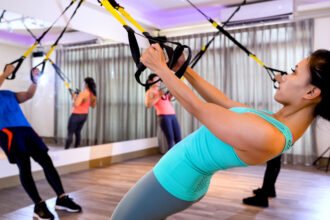 Yoga is a mental, physical and spiritual discipline that requires plenty of hard work and dedication.
Yoga is a mental, physical and spiritual discipline that requires plenty of hard work and dedication. Yoga is a mental, physical and spiritual discipline that requires plenty of hard work and dedication. This is why, even before beginners enroll in classes, it is crucial for them to examine the factors that can have an impact on the type of classes that they should join as well as the routines or poses that they can engage in.
Yoga is a mental, physical and spiritual discipline that requires plenty of hard work and dedication. This is why, even before beginners enroll in classes, it is crucial for them to examine the factors that can have an impact on the type of classes that they should join as well as the routines or poses that they can engage in.
One of the crucial aspects of practicing yoga is the so-called contraindications for practitioners. Contraindications could be a result of the characteristics of an individual or the common guidelines on things to do and avoid in order for you to practice yoga safely.
While yoga is generally safe, there are certain poses and techniques which might be unsafe for others. This is usually the case with individuals who are suffering from certain conditions and ailments. To ensure their safety, they are prohibited from practicing certain poses or, for some, precluded from doing any yoga at all. It might be advisable for others suffering from serious diseases to avail of an individual program, instead of joining a group.
Here are the rest of the contraindications you should consider:
1. When You are Pregnant
Practicing yoga when you are pregnant seems to be the trend nowadays. For sure your teacher would be able to teach you how to do the poses right, but a little reminder would not hurt. Pay attention to the pranayama exercises which relaxes your whole body, particularly the muscles of your abdomen and uterus. This is also consists joint exercises.
2. When You Have Your Period
When you have your period, do not push yourself too hard. You should do yoga which is lighter. No intense twisting, standing postures, backbends, and power asanas please!
3. When You Have Hypertension
You will need a well-trained and experienced yoga instructor if you plan on doing inversions. It is also generally best to consult your doctor before engaging in any yoga for beginners practice.
4. When You have Vegetative-vascular Dystonia
It is recommended that you practice the morning routine that comprises standing poses and inversions. While yoga for beginners can significantly help in the strengthening of the muscles and enhancing mobility and range of motion, your yoga instructor should be made fully aware of your condition.
5. When You Have Spinal Ailments such as Osteochondrosis or Scoliosis
Forward bends whether from a standing or sitting positions are an absolute no-no. You need to also consult your doctor as well as inform your yoga instructor for beginners if you have such condition. It is generally best to enroll in yoga private classes to have customized sequences that generally fit your specific condition.
6. When You Have Arthritis and Arthrosis
Experts advise that you can only practice therapeutic yoga. Other forms and poses are prohibited. For this reason, customized yoga sequences should be designed to take into account your condition.
7. When You Have Neuroses and Chronic Fatigue Syndrome
What you need to do is mild asanas and to focus on deep relaxation and other breathing exercises. There are certain poses that are ideal for such condition and alleviate stress.
8. When You Have Varicose Veins
Do not practice postures which would entail balancing on one or both of your legs. Avoid doing poses that will require you to press your legs against the wall.
9. When You Have Digestive Disorders
Do not ever think of attempting to do twisting poses. It is also imperative that you avoid poses that would have a great impact on your abdomen.
With your knowledge about the poses you can practice given your condition, you are now ready to join yoga classes. Have fun!
 Yoga is a mental, physical and spiritual discipline that requires plenty of hard work and dedication. This is why, even before beginners enroll in classes, it is crucial for them to examine the factors that can have an impact on the type of classes that they should join as well as the routines or poses that they can engage in.
Yoga is a mental, physical and spiritual discipline that requires plenty of hard work and dedication. This is why, even before beginners enroll in classes, it is crucial for them to examine the factors that can have an impact on the type of classes that they should join as well as the routines or poses that they can engage in.







